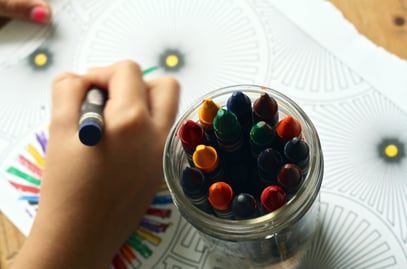Nowadays, books and online gurus promote the benefits of mindfulness from all angles, which makes us think – is there something in this to which we should be paying attention?
The simple answer is yes. It comes as no surprise that there has been an upsurge in the popularity of mindfulness, considering its boom has coincided with the ever-faster, more frenetic way in which we live. Schools are no exception to this change of pace, as many students feel more pressure than ever to deliver ‘perfection’ in every aspect of their lives.
Why should mindfulness become a regular practice for our pupils?
School is where the life-work balance begins. How we grow and navigate this essential part of life will often shape the way we face the future that awaits us. It is therefore important to garner good habits whilst we’re young, when we still have the power of adaptability and openness to try new things.
So what does mindfulness really mean, and what does it do?
As noted by the experts behind Mindful, the practice can actually come in various forms and is becoming an umbrella term for consciously taking a mental break, allowing ourselves a moment to calm down. It can mean sitting with your breath in the present moment without distractions, or partaking in a technology-free, relaxing activity to clear our minds and be similarly present.
Drawing, gardening, colouring and writing are promoted as easy ways to begin being more mindful. Much of the time, niggling thoughts that go unacknowledged grow to an unrealistic size in the brain, creating a greater feeling of stress than they really deserve. Mindfulness can help us to see this and shrink things back down to size.

It sounds like a great tool for students
That’s because it is! With their International Baccalaureate (IB) requirements weighing heavy or busy days filled with study, socialising, sports, hobbies and homework, it is no wonder students appreciate the break mindfulness provides.
However, even more than a break, mindfulness is a way to work on personal skills that help manage the stresses of modern life. Sol Alvarez has been practicing mindfulness for over 15 years. She is adamant that teaching children to be mindful and calm from an early age is invaluable for them. “Mindfulness isn’t easy to get into, and that’s why the earlier we introduce it to kids, the better. That way, they will know how to practice it later when they really need it.”
Some of our teachers often lead small mindfulness sessions in class and are able to see a great improvement in their students, beyond the obvious noise reduction! It can help in many ways, including the following:
- bringing clarity and focus (in particular, enabling older students to reassess and prioritise their workloads)
- helping students to be less reactive - they gain better control over their emotions and become more flexible
- inciting students to be more compassionate towards themselves and others
- improving students’ attention in class, meaning they can take in more information.
- lessening stress and freeing up brain space for learning.
As a relatively new technique in schools that students of the past never had access to, you might ask yourself, do they really need mindfulness now? Has that much changed?
Yes and no.
Mental health struggles and external pressure on school students have likely always been present, but before the age of the internet, they weren’t so easily discussed. Now that the conversation around the subject has grown, it is time to be proactive. If it is possible to help students tame their responses to stress before they grow too large to handle, then why not try?

With much of their lives lived online, where the pressure to always be seen and be perfect is unbelievably potent, mindfulness is a moment for students to put technology and their constant connectivity aside. It creates, instead, a space in which to reconnect with themselves. This might feel odd at first, but ultimately, brings about only rewards.
Katie Harwood


.png)










